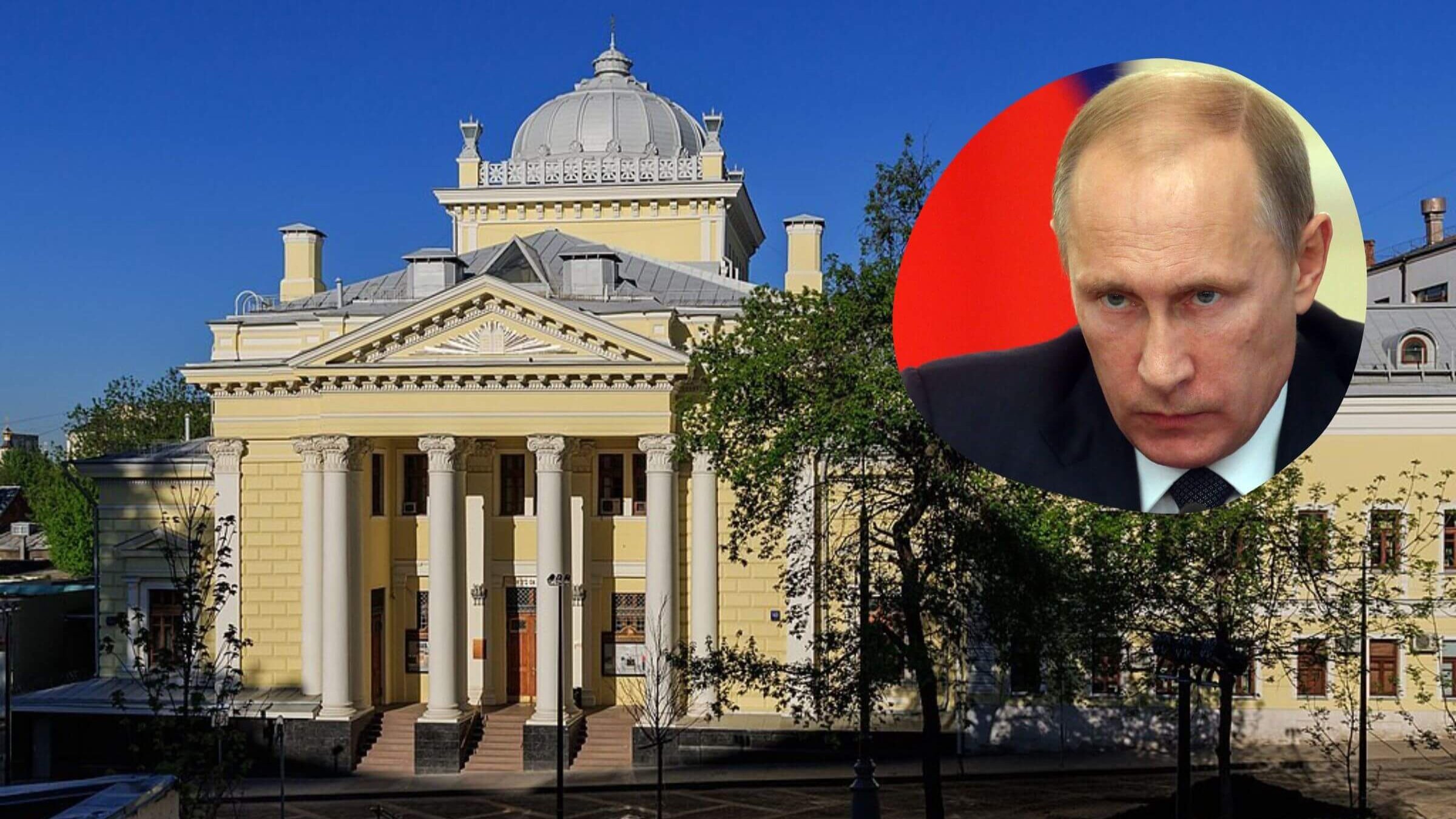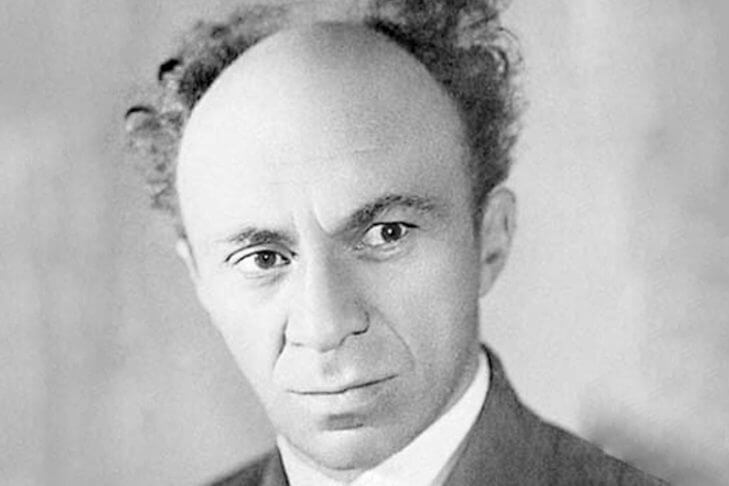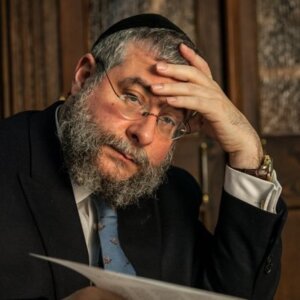Russia’s Jews are caught in the messy politics of Putin’s war
Many Russian Jews, caught in a war no one asked for, are seeking a new life elsewhere

Before he was forced to flee Russia due to his opposition to the invasion of Ukraine, Rabbi Pinchas Goldschmidt was the chief rabbi of Moscow at the famous Moscow Choral Synagogue. Graphic by Jake Wasserman; A Savin/WikiCommons; Sasha Mordovets/Getty Images
One year ago, at 4 a.m., Russian missiles attacked Ukraine, and everything changed.
The historic renaissance of Russian Jewry after the fall of communism came to an abrupt halt. Russia not only started an unnecessary and unwarranted war against a peaceful neighbor, but Russia’s political system changed from within.
While Putin’s invasion remains popular among the general population, the great majority of Jews in Russia did not and do not support the war. Within the Jewish community in Moscow, I took the strongest position against the war, in the process going into exile and resigning from my post in Russia’s Jewish community.
The consequences that followed likely persuaded many leaders in the community, under pressure from the Russian authorities to support the war, to choose silence instead.
When I called on the Jewish community to seek a future outside of Russia, many thousands answered that call. Around 25% of Russia’s Jews have fled or have plans to leave, going mainly to Israel, the UAE, Armenia, Georgia and Turkey.
However, not everyone can leave, and not everyone will. Russian Jewish communities continue to function to the best of their abilities, though with much less funding and more toned-down programming.
For a clear picture of the new reality in a Russia at war with Ukraine, in conflict with the West and in repression against its own citizens, just look and listen to the reportage of the meeting of Vladimir Putin with Rabbi Berel Lazar, one of the chief rabbis of Russia, the day before International Holocaust Remembrance Day.
Sitting around an immense table, at a “safe” distance far from each other, were Putin, the rabbi, and his sidekick. Nobody looked happy to be there.
Putin needed this meeting to validate his military propaganda: Russia is fighting the neo-Nazi regime in Ukraine, in the spirit of his Soviet predecessor fighting Nazi Germany during WWII. Of course the Jews are on his side.
Rabbi Lazar, on the other hand, was very uncomfortable with the whole setup. He tried to voice his call for an end to the “suffering,” while also thanking Putin profusely for everything he was doing. While he was speaking, you could hear the trembling of his voice and the fear emanating from him.

One Russian Jewish official told me that this meeting reminded them of the tragic story of Solomon Mikhoels, Soviet Jewry’s leader during World War II. Recruited by Joseph Stalin to head the Jewish anti-fascist committee, Mikhoels was sent to the United States to convince the Americans to join the war against Nazi Germany.
He traveled from city to city to garner support for the Soviet war effort. Once the war was over, and his services were no longer needed, Stalin discarded him and the other Jewish leaders. Mikhoels’ body was discovered lying in the streets of Minsk in January 1948, where he had supposedly died in an automobile accident. It was widely believed he had been murdered by the state security service.
Jews in Russia today are in a different position than in 1948 because of one reason alone: today the State of Israel, a regional power with nuclear capabilities, guarantees to a large extent the fate of the Jewish community everywhere in the world, come what may.
However, Israel is tilting its support toward Ukraine, and has allegedly been involved in destroying a drone factory in Iran which supplied Russia with drones to attack Ukraine. This will almost certainly influence future relations between Russia and Israel. In any case, the Russian Jewish community and its institutions will remain hostage to the bilateral relations between countries.
We do not know what the future will bring and what changes will take place inside Russia. But based on the history of the not-so-distant past, of community leaders used by the government and then paying the ultimate price for their engagement, we have more than good reason to pray for the safety of its rabbis and Jewish communities.
To contact the author, email [email protected]

















